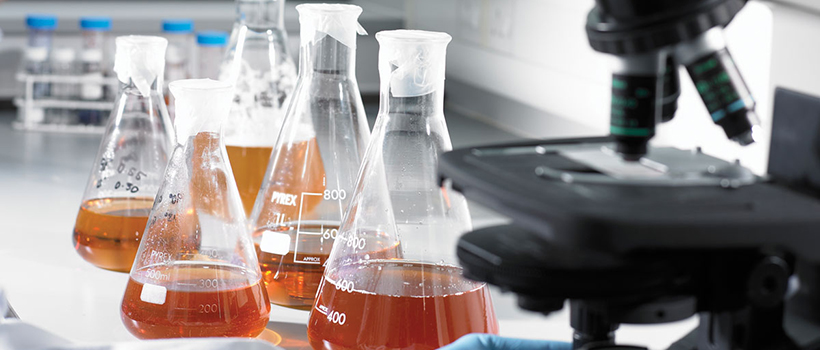
5 reasons to optimise the pasteurisation of your beer and low pH beverages
7 July 2023 | Greg Rachon, Brewing Microbiology Section Lead
We are the UK's leading centre for brewing research, covering all matters related to beer, wine and spirit development, production and analysis. Our work has shown that effective pasteurisation for selected microorganisms in beer can be achieved at significantly lower PU values than those typically used and recommended within the industry.
To expand on this work, demonstrate the optimal level of pasteurisation for vegetative bacteria, yeast and yeast ascospores, and to address the lack of validated pasteurisation indicators for beers, we have developed and validated a pasteurisation bio indicator (yeast ascospores).
By performing optimisation trials, we offer pasteurisation optimisation for premium beers, low / no alcohol beers, wines, cocktails and any other low pH beverages. But, why should you want to optimise your pasteurisation process?..
Here are just five reasons to optimise:
1. Efficiency
Optimising pasteurisation facilitates a safe, verified process in which the product is being pasteurised for less time / at a faster flow rate, compared to following outdated, non-optimised industry norms. Optimising can therefore save time and improve your output and efficiency.
2. Sustainability
Ensuring that products are not overprocessed can result in a less intensive pasteurisation process that lowers energy usage. Pasteurisation optimisation can therefore be a great step to take when looking to reduce the environmental impact of your operation.
3. Reduced costs
Increased efficiency and especially reduced energy usage both enable you to reduce running costs by optimising your pasteurisation process.
4. Improved taste
Overprocessing of beverages may result in damage to aroma and flavour compounds. Optimising can introduce a less intensive pasteurisation process that prevents overprocessing, thereby protecting and benefiting your product’s sensory characteristics.
5. Safety and quality
Validating your process is essential as it allows you to guarantee that your process is safe and microbiologically stable. It also gives you the ability to manage risk when the process fails (e.g. pasteuriser fails, temperature not reached, target PU not achieved), so that you have the necessary information for decisions to be made immediately.
Furthermore, there are safety considerations for new – especially low and non alcoholic – beverages, because there is huge uncertainty of how to pasteurise unique, newly developed beverages. Pasteurisation verification trials help you to determine a safe process for your new product, and also enables you to have an optimised process from the outset, ensuring not only a safe product but also one that is not affected by the negative sensory or cost impacts of overprocessing.
Optimise now for a more profitable future
Our pasteurisation optimisation services are designed to help the industry to reduce costs, and save energy and time, while maintaining the highest product quality. We use a heat resistant yeast ascospore pasteurisation indicator and ensure a robust validation.
Get in touch to find out how we can help you gain the benefits of optimising your pasteurisation.

About Grzegorz Rachon
Grzegorz (Greg) is a microbiology expert who has been in the food industry since the early 2000s, and has been working at Campden BRI since 2016. He has PhD from Reading University and Birmingham University, as well as extensive expertise in pasteurisation optimisation of beverages, process validation, and stability of traditional and novel beverages.
How can we help you?
If you’d like to find out more about pasteurisation optimisation, contact our support team to find out how we can help.
Are you a Campden BRI member who attends the MIG meetings?
- If not, you’re missing out on a whole host of exclusive benefits such as learning from industry-leading experts and networking with peers to overcome your challenges.






